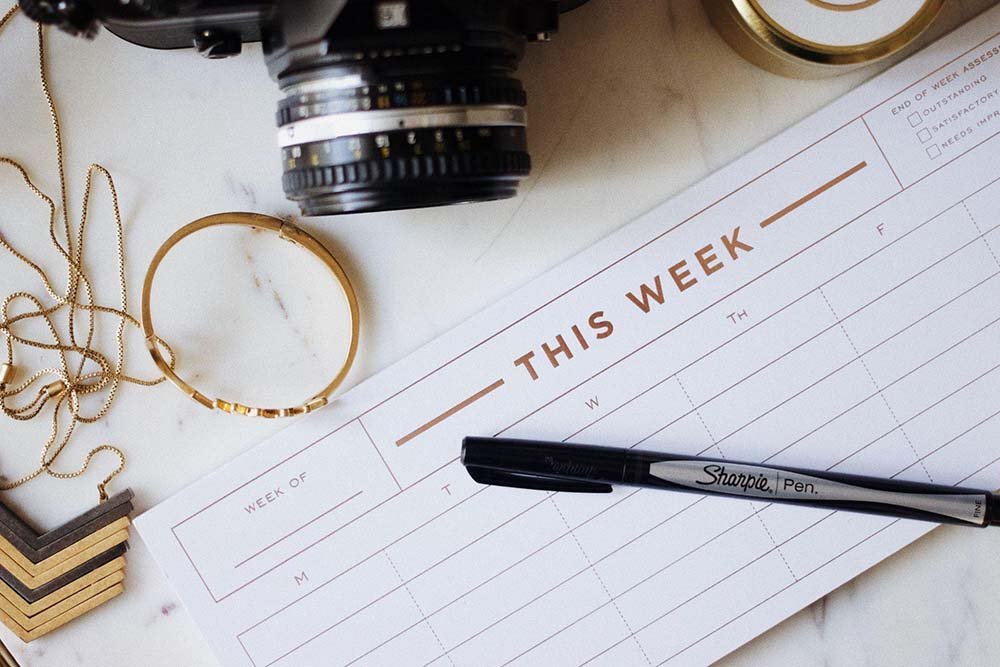Our everyday lives can be very stressful, so knowing how to manage stress and anxiety is crucial. There are plenty of strategies that you can use, but you’ll want to choose something practical.
We gathered this list for you to learn about the best ways to dealing with depression and anxiety. These practical skills and tools will help you a lot, so let’s begin!
1. Speak With a Loved One
Talking with someone you trust is great for your mental health. Let them know how you’re feeling and spend time with them. You won’t feel alone; they may offer you help and support when needed.
Talking with loved ones can help you build your support network, which we all need to deal with stress and anxiety in our daily lives. You can release pent-up feelings and find new solutions to your problems.
2. Get More Exercise

Next, getting more physical activity every day can drastically help to improve your mood. If you can get outside while you do it, that’s even better for your mental health.
A sedentary lifestyle can increase stress and anxiety. Since exercise makes your brain produce serotonin, there’s less in your body when you don’t have much physical activity. Low levels of serotonin are even associated with depression.
Exercising thirty minutes three times a week can help you get most of the stress out of your body while lowering anxiety.
You can take short walks during the day to make this option more practical. Or walking or riding a bike to work or running errands. Many people also watch free exercise videos on YouTube.
Overall, moving your body more is a great way to deal with anxiety and stress.
3. Try To Reduce Screen Time
Spending too much of your day online and on social media can cause stress. We feel more inclined to compare ourselves to others and anxious about how people view us. Excessive phone use can also make it harder to sleep at night, increasing anxiety and stress.
Reducing screen time at first can be very difficult since using our devices can quickly become an addiction. Here’s a quick breakdown of what you can do to start:
- Track and review your screen time.
- Try to set limits for how long you use devices each day.
- Exercise and get outside more to distract yourself.
- Spend more time doing your favorite hobbies.
- Take breaks and stretch every hour.
- Don’t eat when using devices.
You want to reduce your screen to under two hours per day for adults. Since the average adult spends about seven hours looking at screens, that’s a lot to cut back! Take your time and gradually reduce the amount of time you spend online.
If you can do that, it becomes much easier to form healthy habits.
4. Try Somatic Therapy
Somatic therapy can provide practical tools to manage your anxiety daily. Most techniques involve releasing tension caused by stress from your body. For example, breathing exercises, meditation, and other forms of movement are standard with this type of therapy.
You’ll learn to bring more awareness to your body, helping you to release trauma and stress.
Grounding is a Somatic exercise that you can try right now at home. These exercises are designed to bring you to the present moment, which can help you manage anxiety and worry.
Here are a few ways to practice grounding:
- Feel running water over your hands.
- Move your body more often in ways that feel good to you. Stretching, jumping, and jogging are great options.
- Control your breathing by inhaling for four seconds, holding for three, then exhaling for another four seconds.
- Tense and relax different body parts while paying attention to how it feels.
Overall, Somatic therapy is practical for many people. You’ll work with professionals, including through online counselling, to learn different methods for dealing with anxiety. Often, we experience anxiety physically, so dealing with it physically is also important.
5. Consume Less Caffeine
Most of us use caffeine to get through the working day. However, drinking too much can cause your body a lot of stress. Many people also feel more anxious after having too much caffeine. If you’re already nervous, you should avoid caffeine because it can worsen the symptoms.
More than 400 mg of caffeine, which is about four or so cups of coffee, can increase the chances of you having an anxiety attack. Especially when you’re already sensitive to caffeine.
Gradually reducing how much caffeine you get each day is best. You don’t need to cut it out of your diet unless you’re very sensitive.
If you drink lots of coffee, you can try replacing it with teas with less caffeine. Eventually, you may want to switch to mainly drinking water to reduce feelings of anxiety.
Caffeine isn’t bad for you, but too much can make someone who’s already stressed feel much worse.
6. Prevent Procrastination

Another practical strategy is to prevent procrastination whenever you can. Procrastinating too much can cause you to fall behind on responsibilities, leaving you pushing yourself to catch back up. It’s very stressful and can quickly become a downward spiral.
Try keeping a planner or to-do list and organizing your daily tasks by importance. Then, work on setting and meeting realistic deadlines. It also helps to split your responsibilities into much smaller tasks to avoid feeling overwhelmed.
Using timers to keep yourself on track while taking frequent breaks is another good idea. A popular option is the Pomodoro method. You work for 25 minutes, then take a five-minute break. Depending on the task, you can also work in 50-minute intervals with a 10-minute break.
That way, you don’t overwhelm yourself and can increase productivity.
Practice Managing Stress and Anxiety Daily
The more you practice dealing with your stress and anxiety, the more natural it feels. You’ll learn to manage symptoms quickly and efficiently.
Speaking with loved ones, exercising more, and consuming less caffeine are great places to start. When you’re ready to take the next step, you’ll want to consider trying Somatic therapy.
















